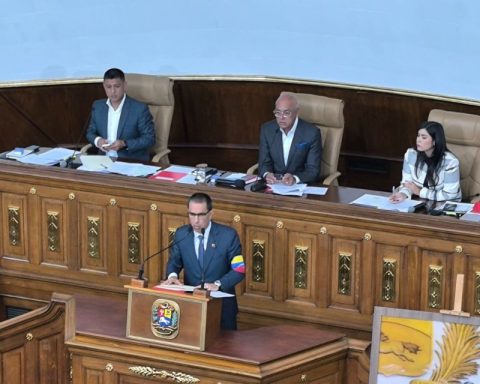After a very busy week, the Chamber of Deputies starts the parliamentary recess period from next Monday (18), which runs until July 31. With the arrival of the electoral period, the expectation is that parliamentarians make a concentrated effort to vote on matters in the first week of returning to work, in the week of August 1st to 5th.
According to the president of the House, Arthur Lira (PP-AL), one of the proposals that can be voted on by the deputies is the one that deals with the taxing role from the National Supplementary Health Agency (ANS) on health plan coverage. The proposal, however, depends on the construction of an agreement with the president of the Senate, Rodrigo Pacheco (PSD-MG).
“Either we will have an agreement between the House and Senate to deal with this issue, or there will not be pressure only in the House to deal with this issue and sell hope to people who really need this solution, as if the matter was already resolved”, he said on Thursday. (15).
In addition to the exhaustive list, deputies must also vote on provisional measures close to the deadline and on some projects that had the urgency approved on the last day of work before the recess. Among them are the bill (PL) that establishes automatic loss of position, employment, public function or elective mandate for those convicted of violence against women, femicide, rape or bodily harm; PL 462 of 2020, which allows the use of the Severance Indemnity Fund (FGTS) for the purchase of more than one property; and PL 252 of 2003, which establishes new rules for public tenders.
Upon returning to work, parliamentarians should also discuss the vetoes of two bills: the one that deals with the exploitation of railways and the one that provides for the criminalization of fake news, fake news.
Recess
The Constitution determines that the recess of the activities of the National Congress must occur in the periods from July 18 to 31 and from December 23 to February 1. In order for the July recess to take place, Congress must approve the Budget Guidelines Bill (LDO), which determines the goals and priorities for public spending and provides the parameters for the preparation of the budget bill for next year.
During recess, a committee of deputies and senators takes care of the powers of the Houses’ tables in case of urgency, in the absence or impediment of its members. In addition, they represent the Congress at events of national and international interest.
The text of LDO 2023 has been approved by the National Congress this week, on the 12th. The text was approved without the most controversial point: the mandatory execution of the so-called rapporteur’s amendments (RP9), which could reach R$ 19 billion next year.
The project presented by the government predicts that next year the public accounts of the Central Government (National Treasury, Social Security and Central Bank) should close 2022 with a primary deficit of up to BRL 65.91 billion and establishes a minimum wage of BRL 1,294 for the next year.
During the last working week, Congress overrode vetoes on the compensation to be paid by the federal government to the states for the loss of collection of the Tax on the Circulation of Goods and Services (ICMS) on items considered essential.
In addition, the deputies also approved three proposed amendments to the constitution (PEC’s): the PEC 15 of 2022 which provides for the creation of a state of emergency to expand the payment of social benefits until the end of the year. The measure generates BRL 41.2 billion in exceptional expenses, that is, outside the spending ceiling, divided between social benefits and tax incentives.
The proposal was approved after a blackout in the Chamber’s computer system. At the returndeputies criticized a decision by Lira to resume voting, but this time in remote character.
The other PECs approved shortly before the recess are the one that establishes a national floor for the salaries of nurses, nursing technicians, nursing assistants and midwives and the 122 of 2015 that prohibits the increase of expenses without the forecast of income..
The PECs of Social Benefits and that of Nursing floor were enacted in a session of the National Congress on Thursday night.
In addition to them, the PEC of the limit of judicial appeals which can be sent to the Superior Court of Justice (STJ). The amendment creates a kind of admissibility filter for this type of appeal. Thus, the appellant must show the relevance of infraconstitutional federal law issues (which are not provided for in the Constitution) discussed in the action.
The PEC, on the other hand, that prohibits the increase of expenses without the forecast of revenue, must be enacted after the parliamentary recess.
















